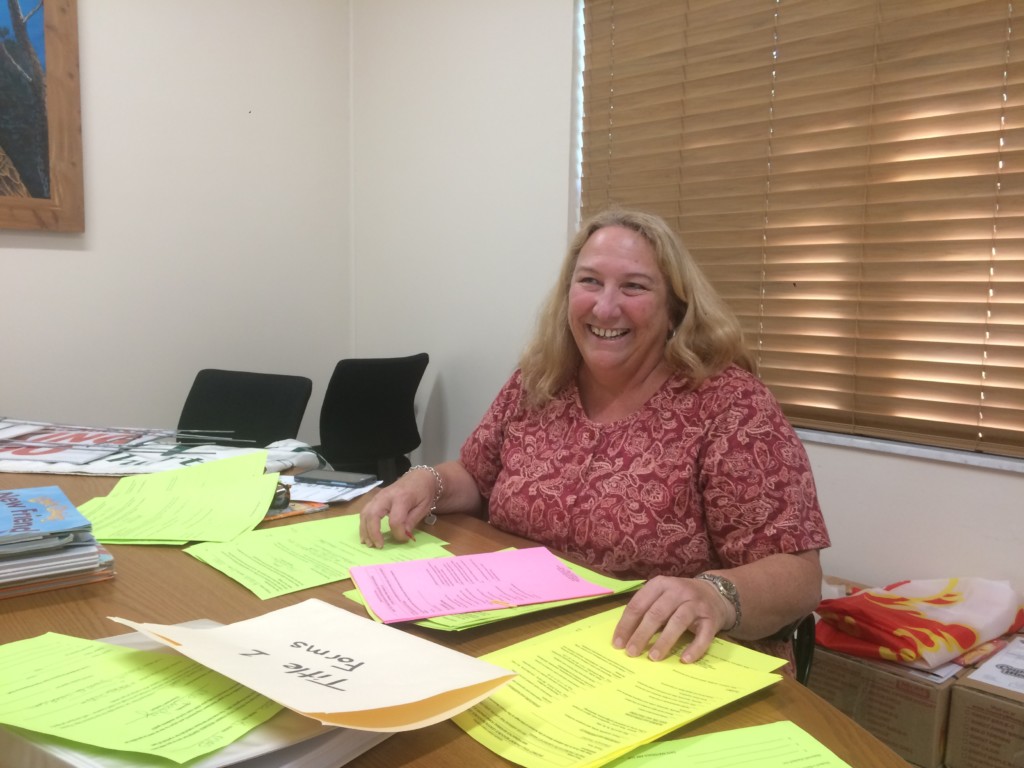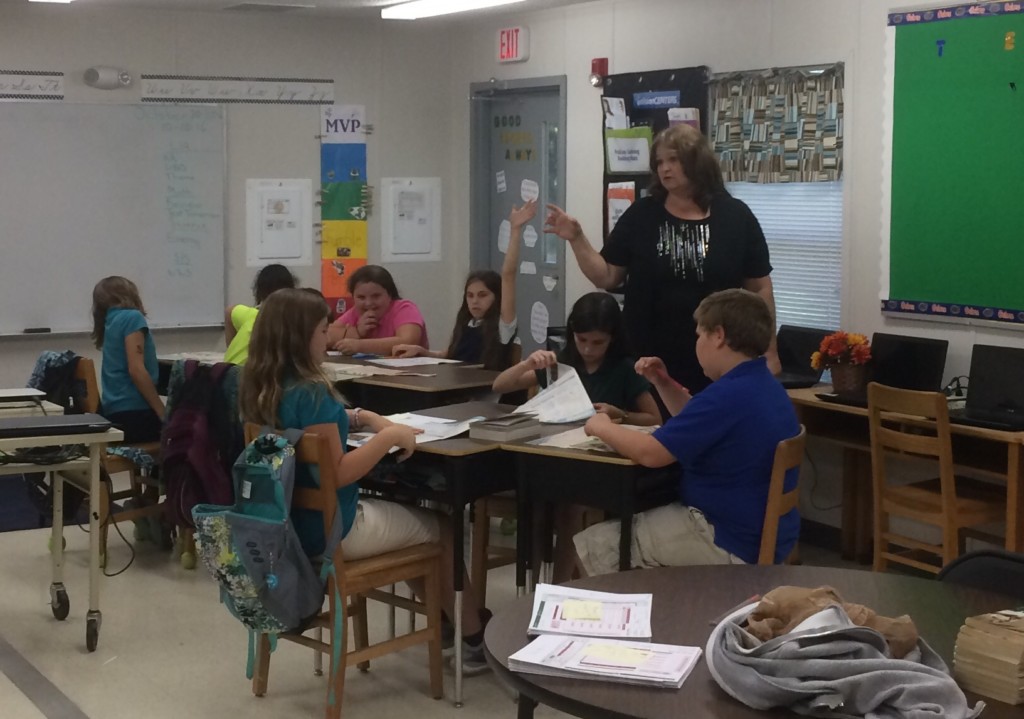MCINTOSH, Fla. – In the summer of 2014, Joelene Vining took the leap to become a charter school principal.
It may have been a risky move. She left a position as an assistant principal in neighboring Levy County to become head of the McIntosh Area School, a small elementary that’s the pride of a hamlet northwest of Ocala.
The school was rated an F by the state. If it didn’t raise its grade quickly, it would have been forced to close.
Vining started recruiting teachers to make the jump with her.
When the call came, Cindy Roach was sitting on the beach. She was a 30-year veteran educator, enjoying retirement. There was a chance she might return to the profession, but only under the right conditions. She would help all her students meet the state’s academic standards, but she wouldn’t be a slave to lesson scripts or mandatory pacing calendars. She would welcome support from administrators, but she didn’t want them looking over her shoulder, questioning her every decision.

Vining honed a pitch as she reached out to contacts and former colleagues: You might have to come out of retirement, or take a pay cut to leave behind a district teaching job. But we’re going to work as a team. And as long as your students learn what they’re supposed to, you’ll have the opportunity to teach the way you’ve always wanted, with no bureaucracy holding you back.
“I treat them as professionals,” she said of the teachers. “They know their students best, so I’m not going to dictate everything that they do.”
The approach seems to have paid off. In Vining’s first year, the first in which the state rated schools based on tougher academic standards, the McIntosh Area School’s letter grade jumped to a C. This year it rose to a B, making it one of 65 Title I charter schools in the state with one of the top two academic ratings.
Roach, who teaches kindergarten, was one of four new hires Vining brought in during her first year at the helm of the K-5 school, which has only one teacher per grade level. She’s now one of three who carpool together from Levy County, 45 minutes each way.
For the last 12 years before her first retirement, Roach had worked as a reading coach. She said she was eager to apply insights she gained from that role in a classroom of her own.
The quest to turn around the McIntosh Area school isn’t over, and it hasn’t always been easy. At the beginning of this school year, Vining had to teach third grade for several weeks until she found a full-time instructor. Now, something about the current team of instructors just seems to click.
“We have that relationship, and she listens,” Roach said. “We’re not on an island in our classrooms.”
Her second retirement could be a long way off.
Roach said she never saw herself as a big cheerleader for charter schools in general. Nor does she want to bash school districts. She said she believes educators in all public schools should have the same autonomy and supportive relationships that she enjoys with her colleagues.

For example, she said the district shares its curriculum map, which helps McIntosh teachers ensure their lessons cover all of Florida’s education standards.
McIntosh is a town of nearly 500, located just south of Micanopy on U.S. Highway 441. It’s shaded by century-old oak trees and palms draped in Spanish moss. It’s known for its Victorian-era houses and a fall festival that swells its population more than 70-fold one Saturday each October.
For much of its history, McIntosh had its own school.
Since the 1870s, the town, sometimes in conjunction with the neighboring community of Center Point, assembled three versions of the McIntosh Community School, each of which eventually closed. The third iteration, starter in 1927, burned down in 1948 and never reopened. But it remained a source of pride for many in the community, some of whom had relatives who’d taught there, or attended themselves.
“We always wanted to have a school in our community, because way back, we did,” said Beverly Dodder, a retiree who lives a short golf cart ride from the campus.
The advent of charter schools – which in Florida aren’t subject to the usual strictures that limit when new public schools are allowed to open, or the number of students they must serve – gave the community a chance to revive that institution.
In 2002, community volunteers, backed by the town council, successfully applied to create a new school on the lot where the old one once stood.
The institution that resulted now enrolls nearly 80 students from communities across northern Marion County.
Neighbors like Dodder are invested in the school. She helped move some of the first stones of its new foundation. Now, she reads to students and, through the organization Friends of McIntosh, helps raise donations for the school, which she hopes will last longer than its three predecessors.
“A lot of people didn’t think it would work, but it has, and hopefully, it’s here to stay now,” she said.


